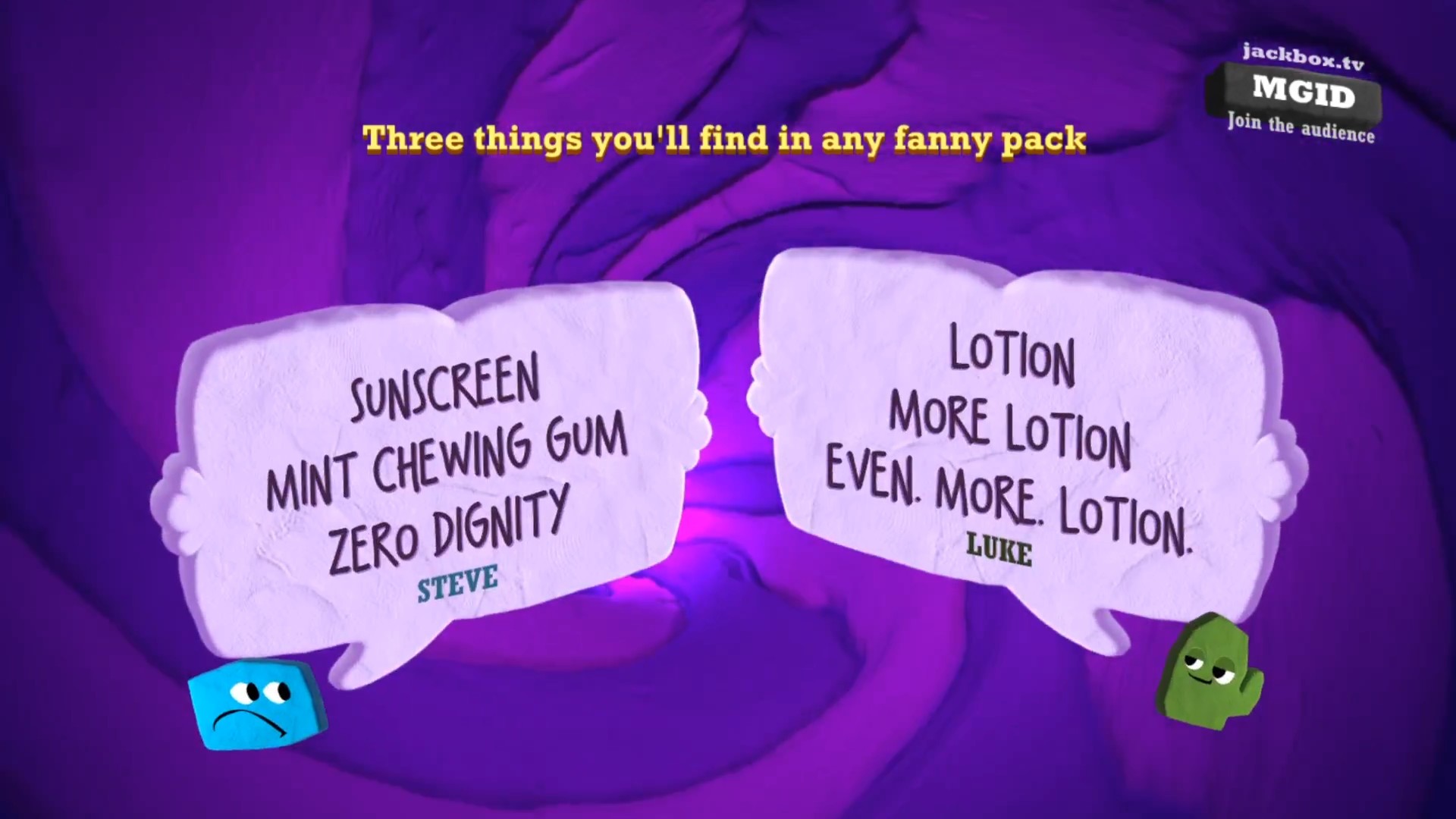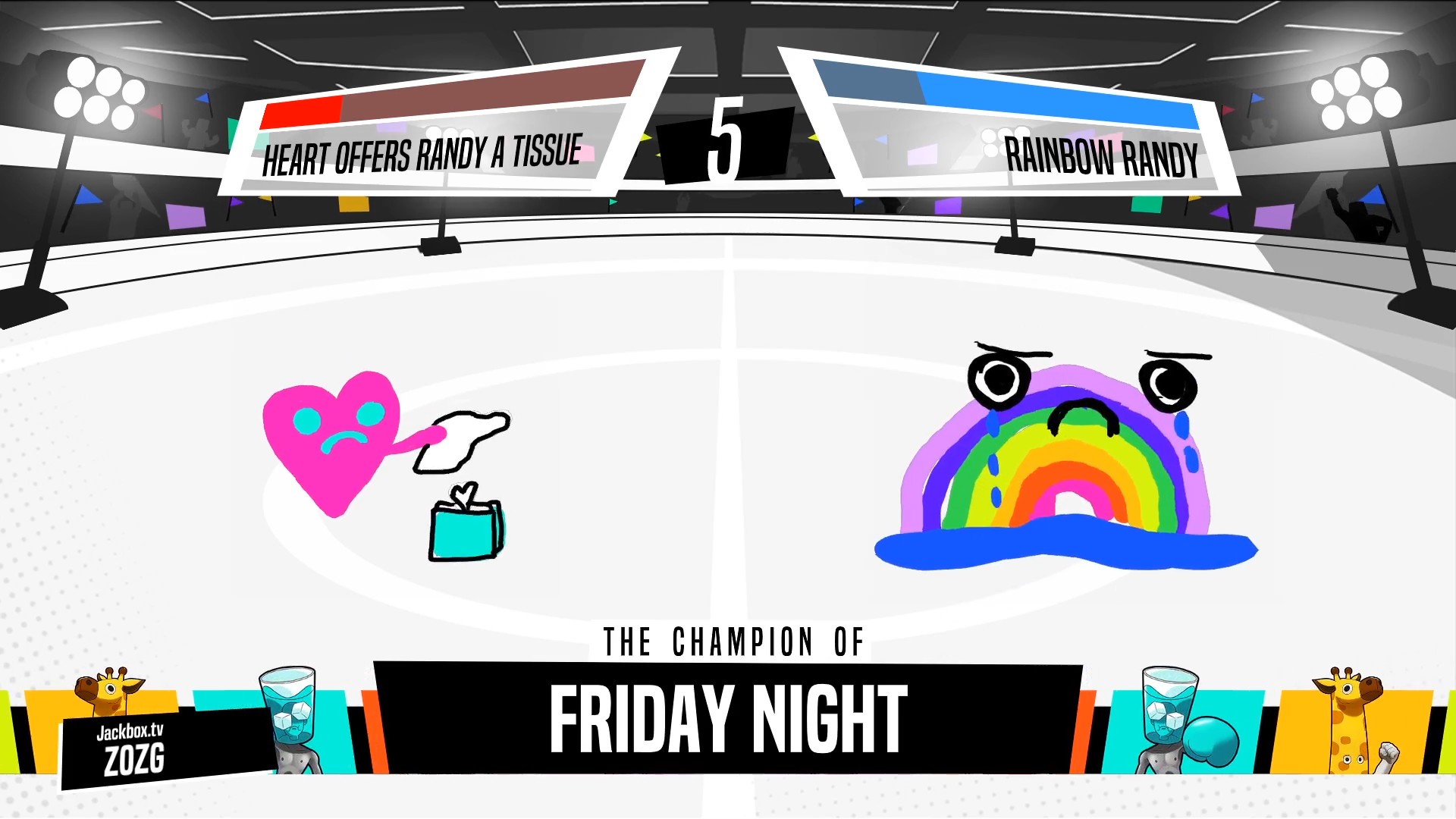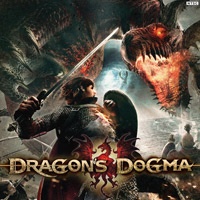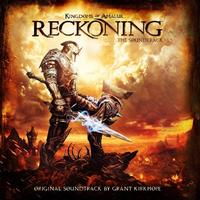
This could not be a better time for the Jackbox franchise to bring out a new title for their series. After all, remote gaming is in, social distancing is super in, and not going insane without some variation of human contact is definitely in. Each of the Party Packs has had some kind of draw or incentive behind them: there isn’t a single Jackbox that feels like it could be passed over. So to bring out a new one in the middle of this never ending quarantine is a smart and sassy move. Moreover, to have one that relies so heavily on communication is incredibly bold, and I think will pay out well for those interested to see what Jackbox Party Pack 7 brings to the table.
To begin with, there are several great QOL improvements in Jackbox Party Pack 7 that should perk up people’s ears. The connectivity to social media platforms has never been easier, mostly with a focus on Twitch but easy enough integration with other areas as well. There is now a focus on better control over the game, with the option to essentially have a Jackbox moderator oversee the room and make sure there isn’t any weirdness happening in the meantime. You can now turn on subtitles with every game, which is crazy helpful for those of us with terrible ears and generally less attention to what’s being said. Most importantly, there is now an option to water down the number of US-centric questions within a game, which will be incredibly welcomed by people not from North America playing this game. Seriously, I get it, Jackbox is situated in the US and many players are from there as well, but it can be discouraging to have so many targets that hit on pop culture that other people straight up don’t know. Well done, Jackbox.
Jackbox Party Pack 7 brings another five titles to the table with only one sequel, and we’ll start with that. Quiplash 3 is the most over-the-plate, don’t rock the boat addition to the series. It picks up with what we’ve seen in the previous Quiplash games and adds, well, very little else. You once again will split the game between three to eight players (with audience members being able to watch) while you come up with the best ending to certain sentences. Whoever says the one that gets the most laughs is the winner, and everyone who didn’t write an answer will vote on which is the best. You keep doing this until you reach the grand finale, where you gotta have three items connected together to make the best quip of all time. It’s…well, frankly, we’ve been here before. If you’ve played Quiplash, you know what’s going on.
To their credit, Jackbox tried to make Quiplash 3 stand out a tad. There’s a different take on the animation style of the avatars and the backgrounds this time around, leaning into claymation that gives a more lighthearted and almost childish atmosphere. It’s nice, and letting players choose their avatars (which is a more prominent theme throughout these games) allows for more individuality. Additionally, there are now more heavily customized ideas that present for players who have done this to death and thought “I can do that!” You can create your own Quiplash pack, which is pretty fun and interesting when it comes to utilizing Quiplash 3 for either getting to know new people, reconnecting with old friends or (and this sounds pretty damn good) synergizing with coworkers. This is a spot where someone with a good writing sense and sharp wit can craft a great package that might gain some notoriety. At the same time, be sure to be aware of who you’re playing with: you don’t want to basically ostracize another person because all your Quip prompts are inside jokes and they feel dumb for not knowing/voting for the right idea.

There’s also these featured content packages in Quiplash 3 that I haven’t totally figured out yet. The featured content are themed Quip sets that the game chooses “just for you.” I don’t think they’re player made, I think they’re generated by the game, but they’re using some kind of freaky algorithm to decide they’re questions you’d want to play and enjoy. Maybe. It could just be they choose some at random and I’m reading too far into it, but it gives a bit of versatility when you want to play Quiplash 3 but also have some idea of what you’re getting into. Overall, Quiplash 3 is a great jumping off point for the whole set, and can and will stand alone as an individual release at some point in the future (possibly). It’s not enough to justify the price of the whole Party Pack, though, so it’s a good thing there’s plenty more to enjoy.
For me, personally, the big winner is Talking Points. With Talking Points, players come up with an idea for an inspirational talk (How I Discovered ________ While Looking For My Socks) and then pass that idea to someone else. That person then needs to give an improvised PowerPoint about the idea while being fed slides from another player (who is the assistant for the talk). The other players need to give them feedback on the talk through thumbs ups and downs, which turn into points by the end of the talk. The presenter can grade the assistant, giving them some points as well, and the whole thing ends with fake awards the players create being given to the different speakers, which also add up to points.
This is one of those more potentially terrible Jackbox games that can be positively magnificent in the right company. If you have players who are fast on their feet with bullshitting on the spot, Talking Points is magnificent. You can draw on the slides and add text as they come, allowing yourself time to think as you spin an insane yard on why a picture of a squirrel on a boy’s head is connected to the positive effects of LSD. If you tend to freeze up when thrown a curveball, you’ll flounder, and then it really might not be so much fun, but for the right group of gabby people this is a godsend. This is also one of those rare games where the players are 100% more important than the software, because the game doesn’t hold your hand. Whereas other Jackbox games have options to auto create answers if you are stuck in a bind, this is all you talking: you are the most important component, and I positively loved it. There’s nothing greater than hearing my wife howl with laughter as I circle crucial spots on a woman with elbow pain to explain why socks would fix her issues. This has the words “drunk” and “Zoom” written all over it.
Blather Round is the only one of the games in Jackbox Party Pack 7 that can be played with only two players, so the concept is a bit tighter and more self explanatory. It’s basically Taboo, but it potentially eliminates the possibility of someone screaming out the wrong answer by limiting you to giving hints by putting together sentences through set generations of words. So you can pick multiple adjectives and nouns from a curated list, but you can’t write your own. As players type in their guesses, you can then use their guesses to guide their answers. If someone guesses Betty White and the answer is Keanu Reeves, you can explain that this person is NOTHING like Betty White (not helpful, but it at least gives some direction). The game is very aware and mostly forgiving about correct guesses, so be aware of spelling but don’t freak out about it.
Blather Round is decent, and it’s something that can be pleasant and fairly accessible to players who are maybe less creative or specific with their hints. There are a good number of prompts to choose from, including some that are specifically identified as “easy”, though easy is still sort of a point of view idea. Twilight, for example, is a very easy concept to guess with certain clues, but that’s contingent on the game lining them up and your friends being in the right head space. For example, when I got Swan Lake, I was able to get the answer guessed in three lines thanks to words like “white aviary water” and things like that. But when I got My Little Pony, I ran out of time before the idea came across. It’s hit or miss, and there’s always a chance someone will decide to cheat and just scream out what the answer is so that someone else can type it in and get mad points. I mean, the chances of cheating exist in every game, but this is one of the most straightforward (and also why I’m glad the moderator option was added). It’s good, it’s just not my favourite in the pack.

The same goes for Champ’d Up, the game of making champions based off of prompts for dramatic sounding heroes and villains. The drawing and creation tools of the Jackbox franchise look a bit better, with the marker and pen tools being more responsive on smaller smartphone screens and also just better at knowing when to fill in a shape with a colour instead of having you scribble over the whole thing. You get a prompt (The Champion of Living on the Edge) and then need to design what you think that champ might look like, complete with a fantastic name. Here’s where it gets tricky: after you make your champion, you and the other players all swap titles, and you get a chance to look at their champion they designed. Now you get to make a different champion, one that could very easily be the antithesis of their hero, and see who votes for who more. A great example is my kid made a fish-themed champion, and I promptly drew a crazy old fisherman in a rain slicker. Instantly got more votes and a sharp eyed glare from my daughter. Worth it.
The champions you design in the first and second round then come back in the final round, where they get arbitrarily assigned to totally new and different championship titles, and you have the ability to tag in or out whichever of the champions you want. This is where the game gets a little hectic and also felt a bit flat. I mean, if you made a champion for Sadness and now they need to compete in the Escape Room title, how the crap are you supposed to spin that? Also, as always, the greatest winners of this game are either the ones who can draw REALLY well, or those who can draw very badly and then give the champion a funny name. Drawing does come more naturally to kids, though, so it’s a decent party game for younger players, plus it’s much easier to censor them from drawing a penis than just typing the word penis (though the content filters are readily available for each and every one of the games).
The final game, The Devils and the Details, is probably the most ambitious of the Jackbox Party Jack 7 games, and also the most outwardly chaotic and potentially anger-inducing. This game puts you in a reality tv style family set where you and your fellow players are now members of a devil household that’s moved up to earth. You need to complete a certain number of tasks each day to maintain the illusion of being human. You know, mowing the lawn, making dinner, things like that. The problem is that most of these tasks require multiple people in order to accomplish them, so you gotta trust that other people are paying attention when you physically call for help to finish a task. You end up with three kinds of tasks: mandatory tasks that you need to do each day, additional tasks that add to the family’s morale and points, and selfish tasks that only give you points but destroy the fabric of your family. This isn’t even counting the fact that everyone in the family is randomly assigned a role (parent, kid, teenager), so your tasks are wildly different and may or may not be more detrimental if you fail to do them.
This feels like the kind of game you give to a group of people who sort of get along and need to get along better. In order to really succeed, you need to have good communication, fast fingers and be able to concentrate on both the screen and your smart device at the same time. You need to really see how different meters are doing (both the selfish meter and the family progress meter) and you need to balance it all out. There’s nothing wrong with occasionally grabbing a selfish task, since those give you massive individual personal points, but constantly doing them guarantees an early game over. Needing to basically keep seven balls in the air at any one time can be utterly exhausting, and having some kind of confusion or misunderstanding leads to pandemonium. It’s like the Bomb Corp game from Party Pack 2, but it’s way more entangled with more players and more information, and it can be fun, but it can also be the most stressful game of the whole pack. You should absolutely give it a try if you’re up for it, but make sure you’re playing with a group of people who can clearly listen and respond to things. Eight people are going to be your best bet to reduce pressure, but please make sure everyone is well rested and sober before jumping into this one.
I’d put Party Pack 7 on par with number 6 in terms of variety and versatility. I don’t know if I’ll ever want to revisit The Devils and the Details again, but I’ll be coming back time and again for Quiplash 3 and Blather Round, and I can’t wait to finally be able to be in the same room as other people so I can do Talking Points to full effect. Champ’d Up will be a go-to for my kids to be certain, so I think that there’s another metric ton of replay value within. It’s a solid step forward, and players hungry for some brand new content will find it here with excellent effect, tons of replay and a brand new way to lose your mind with friends.
REVIEW CODE: A complimentary PC code was provided to Bonus Stage for this review. Please send all review code enquiries to press@4gn.co.uk.
Subscribe to our mailing list
Get the latest game reviews, news, features, and more straight to your inbox
Thank you for subscribing to Bonus Stage.
Something went wrong.
The Jackbox Party Pack 7 Review
-
Gameplay - 8/10
8/10
-
Graphics - 8/10
8/10
-
Sound - 8/10
8/10
-
Replay Value - 8/10
8/10
User Review
( votes)Overall
Summary
A fully beefed up Quiplash, a hilarious presentation game, some excellent QOL improvements and tons more make this a great Jackbox entry.





